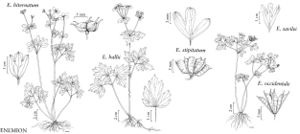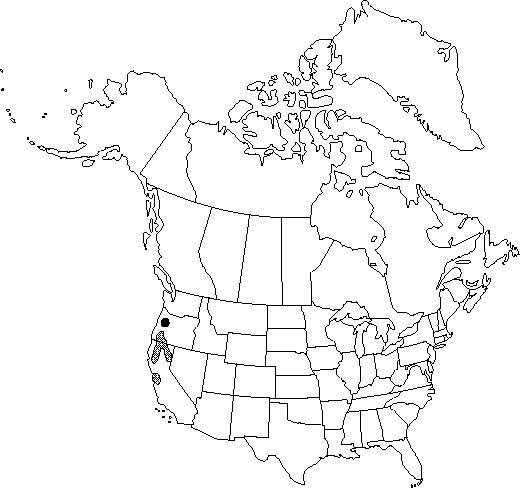Enemion stipitatum
Bull. Misc. Inform. Kew 1920: 160. 1920.
Common names: Siskiyou rue-anemone
EndemicIllustrated
Basionym: Isopyrum stipitatum A. Gray Proc. Amer. Acad. Arts 12: 54. 1876
Treatment appears in FNA Volume 3.
Revision as of 21:48, 5 November 2020 by imported>Volume Importer
Stems 3-12 cm, cespitose, not rhizomatous; roots tuberous. Leaves abaxially glabrous; leaflets entire or deeply 2-3-lobed, apex rounded, glandular-apiculate. Inflorescences axillary, flowers solitary; peduncle strongly clavate. Flowers: sepals 3.5-6 × 1.4-2.5 mm; stamens 8-15; filaments flat, narrowly triangular, 1.9-3.2 mm. Follicles stipitate, upright and appressed; body oblong, 4-8(-9) mm, abruptly contracted into style beak; beak 0.5-1.5 mm. Seeds 0.9-1.4(-1.7) mm, glabrous.
Phenology: Flowering late winter–early spring.
Habitat: Shaded shrubby areas, oak woodlands, and moist deciduous or mixed evergreen forests, occasionally in open pastures
Elevation: 200-1500 m
Discussion
Selected References
None.
Lower Taxa
None.

